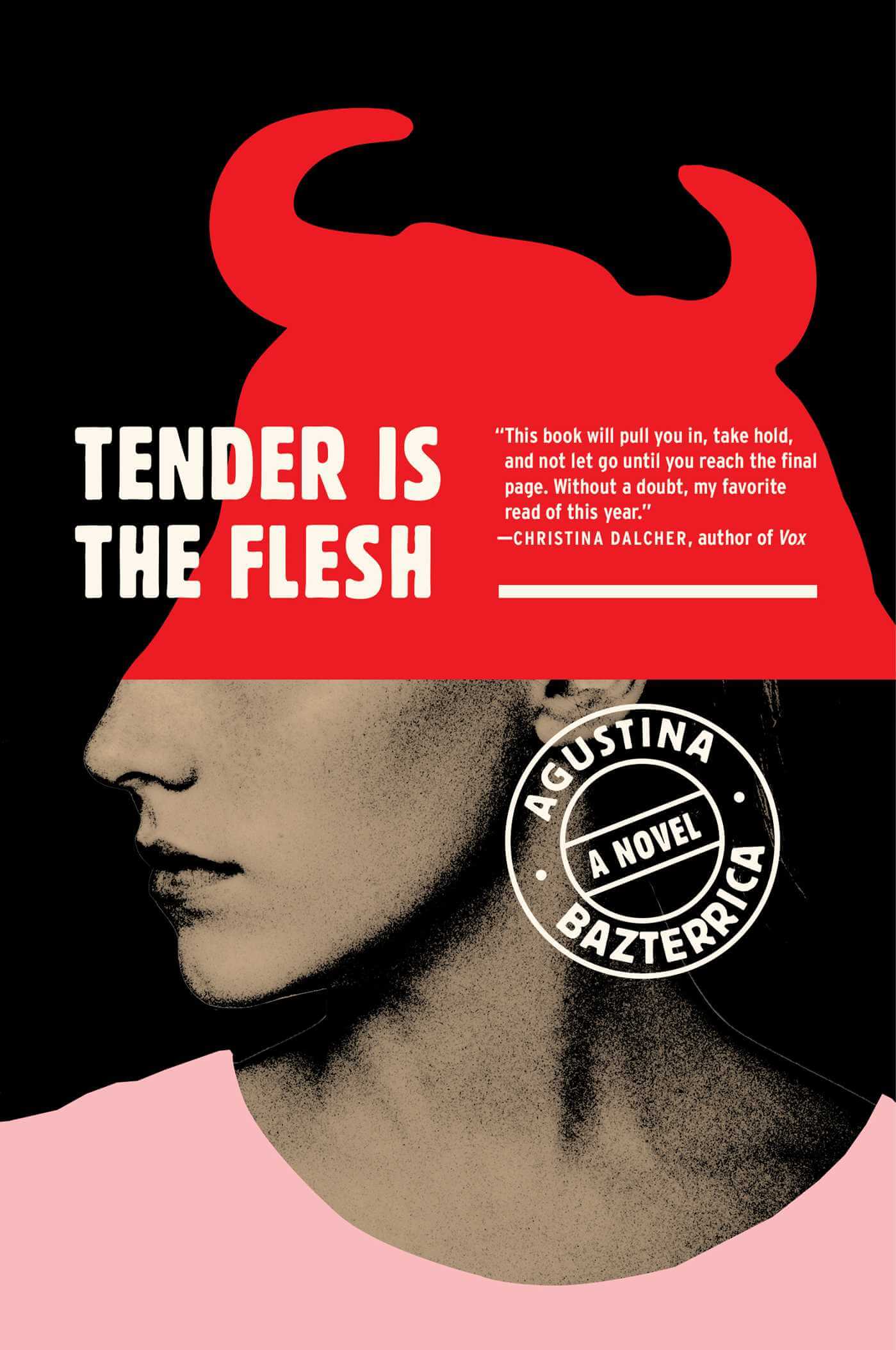Agustina Bazterrica’s Tender Is the Flesh offers gory and riveting details that you might want to experience at least once in your life!

Title: Tender Is the Flesh (Cadáver exquisito)
Author: Agustina Bazterrica, translated by Sarah Moses
Year of publication: 2017 (Translated into English in 2020)
Genre: Dystopia, Fiction, Horror, Literary Fiction, Science Fiction, Spanish, Thriller
Rating: 🌟🌟🌟
Trigger Warnings: Alcohol, Amputation, Animal death, Animal Cruelty, Blood, Branding, Cannibalism, Child death, Childbirth, Death, Gore, Homophobia, Human trafficking, Illness, Infertility, Insects, Murder, Pedophilia, Pregnancy, Rape, Torture, Violence
Blurb
Marcos, works at a local processing plant where he slaughter humans. His wife has left him, and his dad is dealing with dementia. Marcos tries to keep his head down and not think too much about his job. First, there was this virus that made all animal meat poisonous, and then the government started what they called the “Transition” where eating human meat or referred to as “special meat” became legal.
Marcos is trying to focus on his job, but then things take a turn when he’s given a live specimen of the highest quality. He knows he’s not supposed to make any personal connections with the “meat,” but as he spends time with her, he starts treating her more like a person. This really messes with him because he begins to realize what has been lost and what could still be saved. He knows he’s not supposed to connect with her, but as time goes on, he starts treating her like a human being. As he continues to connect with her, he grapples with the implications of his actions and what it means for both of them.
Review
Tender Is the Flesh is striking from the cover alone—it already hints at the unsettling content inside. This book’s writing seemingly staccato style is something I enjoy. It’s rhythmic, almost like reading a rap, with a sharp, fast pace. It also has a distant tone, which is fitting for what is to come in the book.
Bazterrica did not shy away from writing extremely violent and graphic depictions of dehumanization, detailing its entire process exhaustively. I believe that this boldness deserves praise. Her depictions made me pause from time to time to question its morality.
The narrative also revolves around power and control, which are well explored alongside dehumanization. I particularly liked the manipulation of language and meaning, such as calling human meat “Transition” to euphemize cannibalism. This reminded me of 1984 by George Orwell, where language and history are rewritten to control citizens.
The book succeeds in making readers uncomfortable, intrigued, and mortified—if these were the reactions it intended to provoke. However, I feel it falters in one of the most essential aspects: character development. In my opinion, the protagonist is underdeveloped, and his emotions and motivations don’t match the gravity of his actions. The novel focuses heavily on the darker side of human nature, where people consume each other without remorse or moral questioning—pure violence without much nuance.
Final Thoughts
This book has a promising premise, exploring it with heavy gory detail, making it perfect for fans of horror fiction. However, it feels somewhat incomplete. It places too much emphasis on violence without fully developing the characters or providing a more nuanced critique of societal issues like commodification, control, and moral decay that were already present in the book.
I’d recommend this book for lovers of horror fiction or anyone looking to spice up their bookshelf and venture into unknown territory. But if the gory details feel overwhelming, you might want to start with I Who Have Never Known Men by Jacqueline Harpman, which is similarly intriguing and set in a dystopian world!
Do you think this book is exceptionally done or it could have been imrproved just like what i think, let me know in the comments! 🫶🏼
Leave a Reply